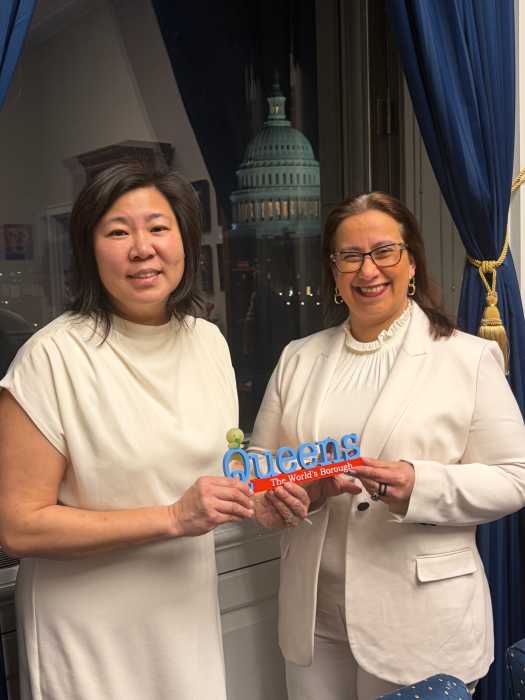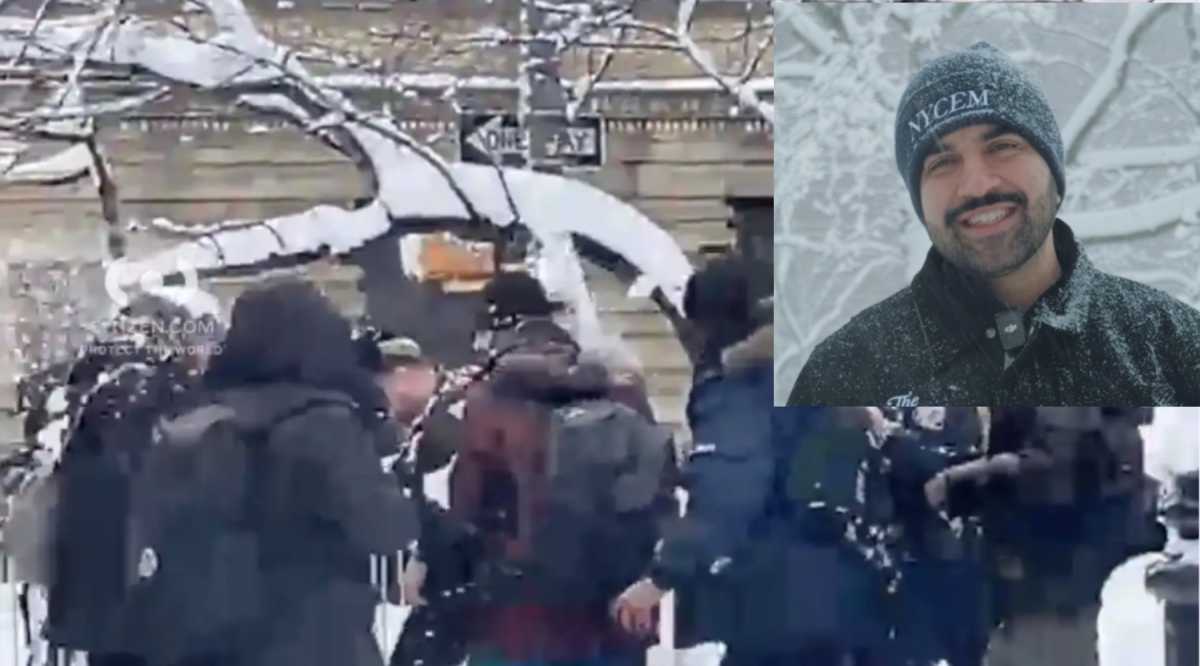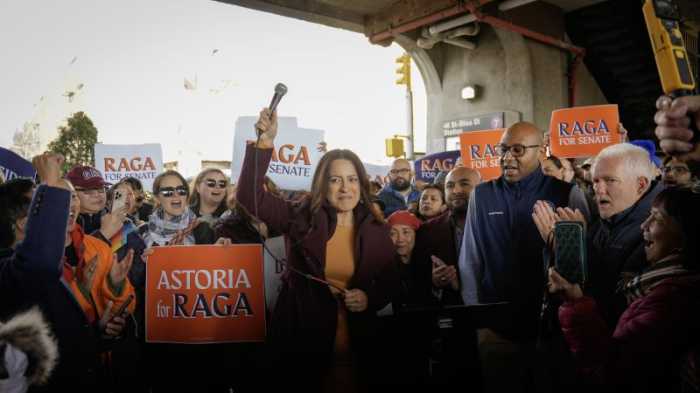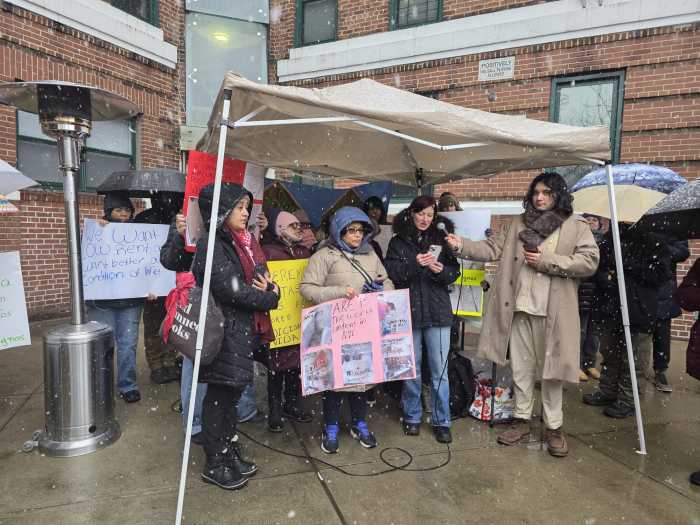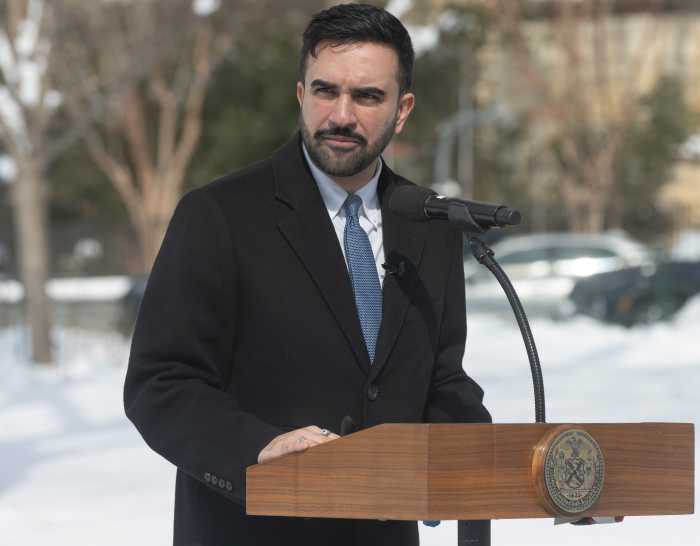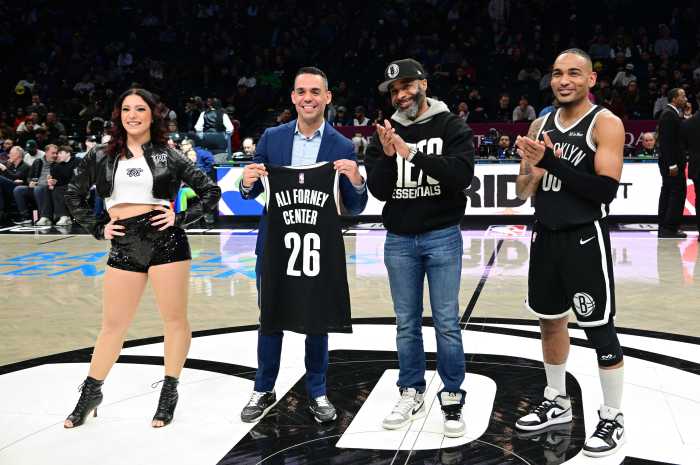By Patrick Donachie
Mayor Bill de Blasio said a location for the long-awaited new police precinct in southeast Queens might be determined by the end of the summer, although he cautioned that it would likely be years before construction on the precinct was completed.
The news about the 116th Precinct came in the midst of a two-hour town hall held at Springfield Gardens Educational Campus June 16. The event was moderated by Councilman Donovan Richards (D-Laurelton).
The city has allocated $70 million from this year’s budget for the construction of a precinct to serve the communities of Rosedale, Brookville, Laurelton and Springfield Gardens. The area currently is covered by the 105th Precinct with a separate substation. Richards said committed community members had been fighting for the new precinct for decades.
Questions concerning quality-of-life issues dominated the evening, with several questioners bemoaning the preponderance of trucks illegally parking or operating in a reckless manner in the confines of the 105th Precinct, which runs along the Nassau border from Glen Oaks to Rosedale.
De Blasio touted a 10 percent drop in murders citywide, with a 20 percent uptick in gun arrests, and contrasted his vision with that of previous administrations and critics. He noted that there were zero murders to date in the confines of the 100th and 105th Precincts, and that community policing was in place in three out of the four police precincts in the area and would be instituted at the 103rd Precinct, which covers Jamaica, this fall.
“I said we need a safer city and a fairer city,” he said. “And there were many people saying you had to have one or the other.”
The mayor and Richards also spoke about a $1.5 billion investment from the city included in the mayor’s 2015 executive budget to address flooding issues in southeast Queens, with more than $770 million to be allocated in the next four years. Chief among the issues is to improve sewer infrastructure in the area.
De Blasio also announced that one to three family homeowners would be receiving a $183 credit from city government this summer in return for what he said was a long-standing practice of hidden taxes in residents’ water utility bills, though earlier this week a Manhattan Supreme Court judge issued a temporary restraining order, saying the city did not have the power to offer the credit.
Asked to expand on recent City Council legislation offering police the option of decriminalizing minor crimes and offenses, de Blasio said the relationship between his administration and the police was not as confrontational as had been represented in some media. Last month, the Council passed the legislation decriminalizing low-level, non-violent offenses.
“Everything we’ve done to address summons in this city has been done shoulder-to-shoulder with the NYPD,” he said. “We want officers to have the opportunity to use the tool they know is right.”
Richards also spoke about the new legislation, saying that people of color were overwhelming penalized and burdened by being charged with minor offenses, and said that a prior arrest for a petty crime should not define an individual’s future.
“We are leveling the playing field,” he said. “Based on the color of our skin, it shouldn’t be a life sentence.”
Reach reporter Patrick Donachie by e-mail at pdona

